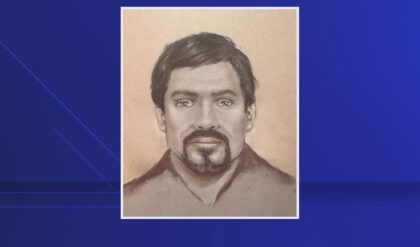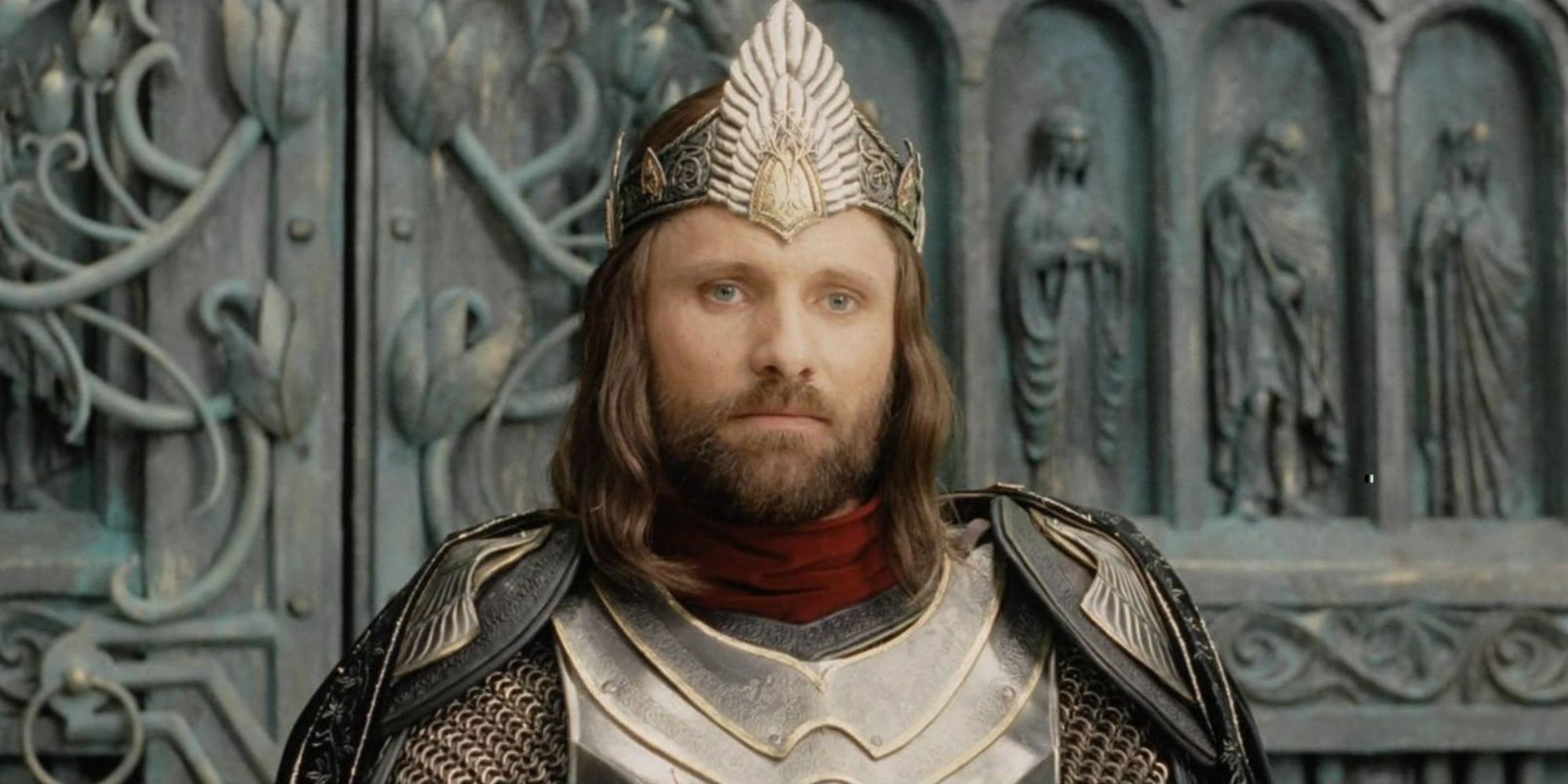
As Aragorn, son of Arathorn stands in front of his assembled friends, allies, and subjects, the Silver Crown upon his brow, he gives a short speech: “This day does not belong to one man, but to all. Let us together rebuild this world, that we may share in the days of peace.” Then in a gentle voice he sings a short verse in Quenya, the ancient elven tongue, before descending into the crowd. This phrase carries deep meaning in Tolkien’s Middle-earth lore.
Aragorn Sings The Oath Of Elendil After His Coronation In The Lord Of The Rings: The Return Of The King
Words That Echo Through Three Thousand Years Of Middle-earth’s History
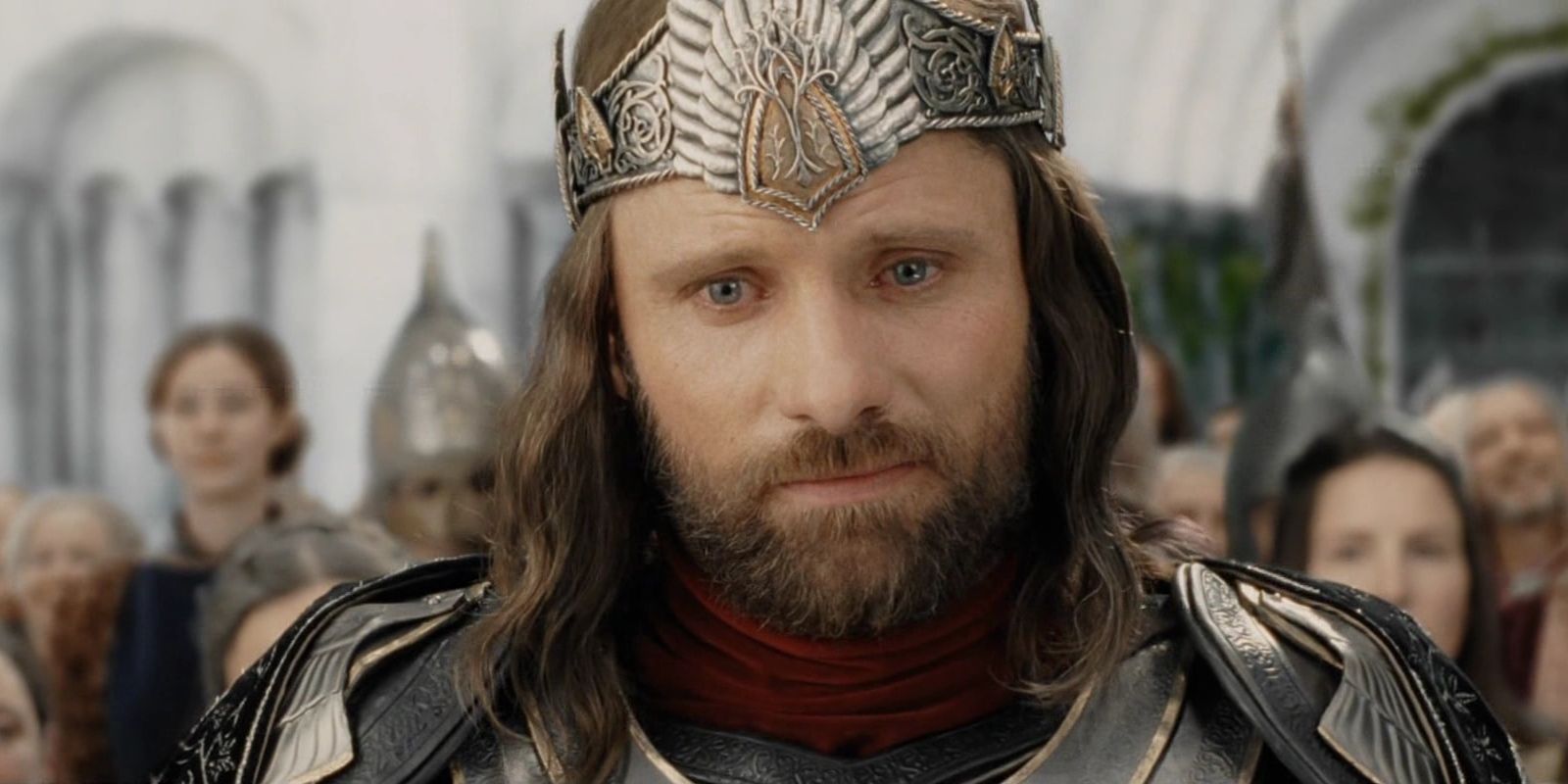
The Elven song Aragorn sings after being crowned is a quote from his distant ancestor, Elendil, father of Isildur and first High King of Gondor and Arnor. Elendil was one of the survivors of the destruction of Númenor, the great kingdom of Men across the sea from Middle-earth, who led his sons and followers away just before it sank into the sea. As he first set foot on the shores of the land his descendants would come to call home, Elendil spoke, “Et Eärello Endorenna utúlien. Sinome maruvan ar Hildinyar tenn’ Ambar-metta.” Or, translated from Quenya into English:
Out of the Great Sea to Middle-earth I have come. In this place will I abide, and my heirs, unto the ending of the world.
This isn’t the first time Aragorn expresses himself through singing in an Elven language; in the extended edition of The Fellowship of the Ring, he sings part of a stanza of an ancient Elven poem about Beren and Lúthien while he keeps watch over Frodo, Sam, Merry, and Pippin at the end of a long day slogging through the Midgewater Marshes. This song is particularly relevant, as Beren was a human and Lúthien an elf, and their love was opposed on all sides, much like the love Aragorn feels for Arwen.
Viggo Mortenson, the actor who played Aragorn, was the one who came up with the melody he sang for the Oath of Elendil.
Having spent his adolescence in Rivendell among the elves, Aragorn is a longtime Elf-friend and scholar of Elven lore, so it is no surprise that he knows Elven poetry, or the portentous Elf words spoken by his distant ancestor. Although Aragorn has not come out of the Great Sea to Middle-earth, he has completed a significant voyage, and the parallels between him and Elendil cannot be ignored.
The Oath Of Elendil’s Meaning Explained
A Promise To Himself, His Children, And His Kingdom
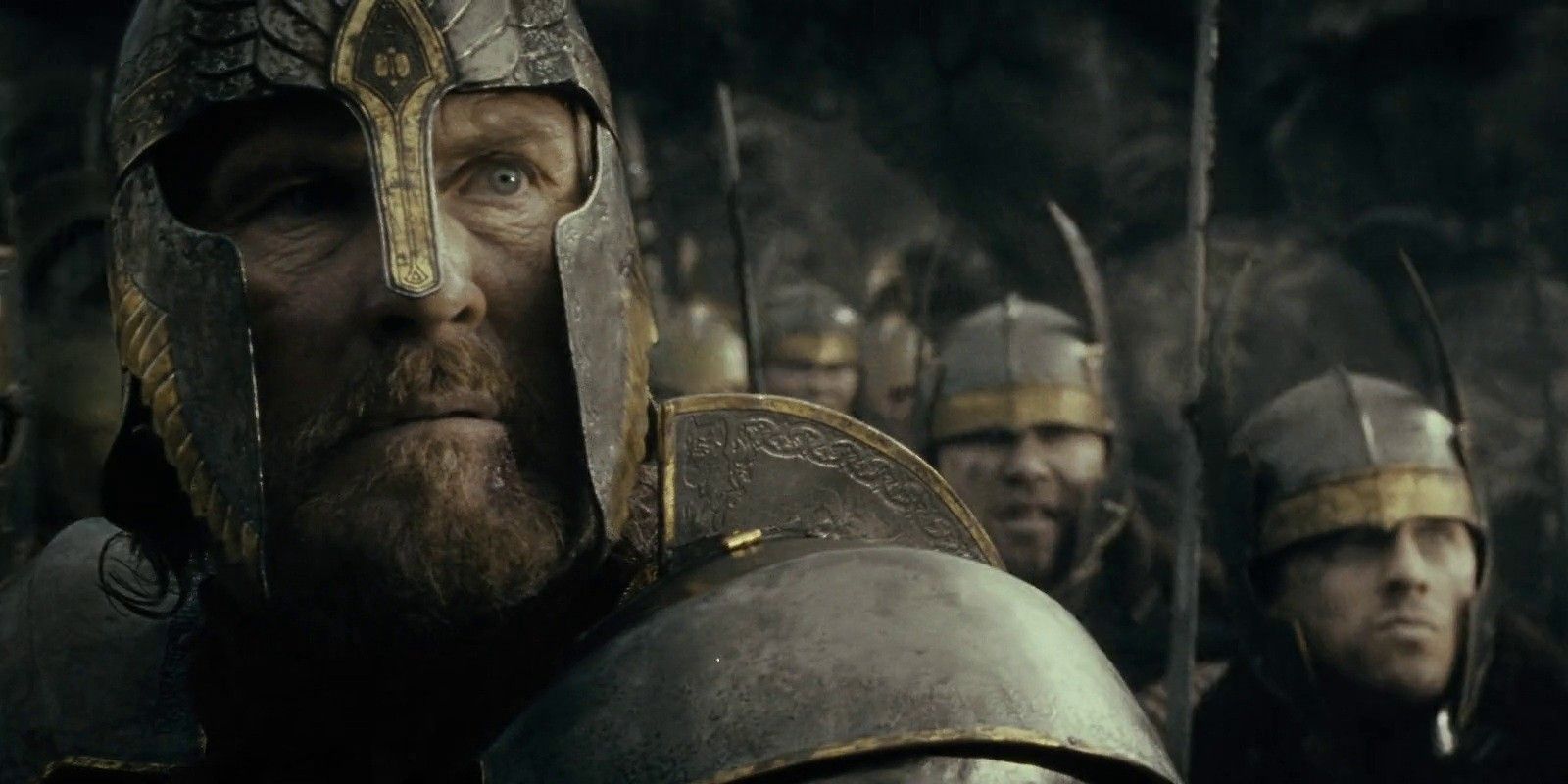
The oath Elendil spoke was a promise to himself and his family that Middle-earth would forever remain their home. He and the Númenoreans that had followed him were exhausted, having fled the destruction of their old home at the hands of Ilúvatar, supreme deity of their world. Ilúvatar had shattered the island of Númenor for breaking the covenant the Númenoreans had made with him to not sail west into the sacred Undying Lands. But the last king of Númenor, Ar-Pharazôn, was manipulated to lead an assault on the Undying Lands by the Dark Lord Sauron.
Elendil, instead of following Ar-Pharazôn to his death, led nine ships worth of Númenoreans who remained faithful to Ilúvatar east to Middle-earth, and upon arriving there they made a new home, founding the kingdoms of Arnor and Gondor. Elendil’s oath was a promise to continue abiding by Ilúvatar’s will, and to never succumb to the lust for power that led to Númenor being drowned.
Why Aragorn Sings The Oath Of Elendil After His Coronation
He Realizes Exactly How He Follows In Elendil and Isildur’s Footsteps
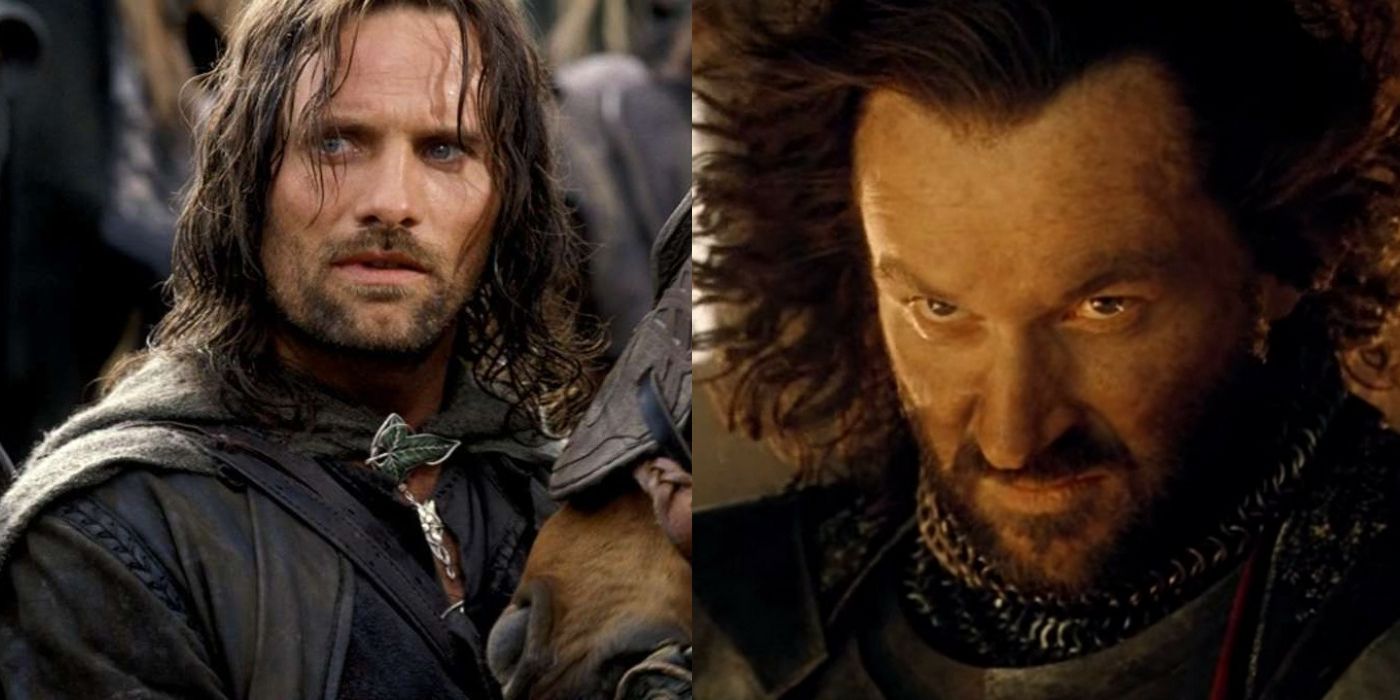
Throughout The Lord of the Rings, Aragorn struggles with comparing himself to his ancestors, particularly Isildur, who failed in his duty to destroy the One Ring, thereby allowing Sauron to survive to threaten the people of Middle-earth again. Aragorn sees himself just as fallible to hubris as Isildur was, and spends much of the trilogy worrying how he will handle his responsibilities as King of Gondor. Yet as he stands before the crowd atop Minas Tirith, the Silver Crown on his head that Elendil wore over three thousand years before, he finally sees he is worthy of his heritage.
Reciting the Oath of Elendil not only literally reaffirms his ancestor’s promise to the people of Gondor and Middle-earth, but also highlights a very direct parallel between Aragorn and Elendil. Both kings underwent great and perilous journeys in order to protect the people they cared about, and both did so while aware of the mistakes their fellow Númenoreans made.
Quenya is one of two major elven languages in The Lord of the Rings , although during the events of the books it is considered archaic and scholarly, much like Latin is today. Most of the elven speech in the films is in Sindarin.
Elendil saw Al-Pharazôn taken advantage of as Sauron used the old king’s fear of his mortality to drive a futile assault on the Undying Lands. Aragorn, in turn, looked back at Isildur, whose own greed blinded him to the consequences of keeping the Ring, which in turn led to his death and the throne of Gondor sitting empty for three millennia.
Aragorn’s internal struggle is a fitting parallel to both the journey he underwent to claim the throne of Gondor and also to the struggles his ancestors had at the end of the Second Age. It’s fitting then, that The Return of the King ends with his ascension to the throne, tempered by wisdom and experience and, above all, humility, as the Fourth Age of Middle-earth begins.


